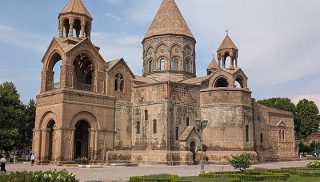
Armenia will become a parliamentary state through a constitutional referendum

According to well-informed sources the Armenian government elite has made a decision to conduct a constitutional referendum in 2014.
The commission of constitutional reforms, which will be established by the end of the current year, probably in December, will be headed by the chair of the constitutional court Gagik Harutyunyan, report the same sources. As a result of the reform, Armenia will become a parliamentary state and the president will be entailed with limited powers and quite customary rights. According to the version discussed within the government, the justification of this reform would be the fact that after signing the comprehensive association agreement in Vilnius, the EU would require that Armenia drastically reform its legislation and type of government.
The association agreement includes such a provision. And the adaptation of the Armenian legislation to the EU requirements will become from the reform of the prime law – the constitution. But the main reform would include the elimination of the current system of governance – the semi-parliamentary system and Armenia’s transition to the parliamentary form of governance.
Quite possibly, the government might leave the initiative of the constitutional reform to the opposition, thus showing that they considered the viewpoint of the opposition in the reform process. Let’s remember that the opposition – the ANC, Prosperous Armenia, Heritage, ARF parties before the recent national elections would demand to eliminate the majoritarian system and transition to a 100% proportional system, and the next step should be the transition to parliamentary form of governance. Having considered this fact, none of the political parties would object a constitutional reform and the referendum will be held in an environment of civic consensus.
Let’s remember that after the 2013 presidential elections President Serzh Sargsyan suggested that Raffi Hovhannisian lead the constitutional commission but the latter turned him down. After these changes take place, Sargsyan will have the opportunity to continue his authorities and functions after the completion of the presidential term.
There is a possible forecast that prior to the 2017 parliamentary elections Sargsyan might put down his powers and presidents and become a prime minister. Let’s remember that the President of Georgia Mickail Sahakashvilli also attempted to become a Prime Minister in Georgia.
The latter, as well reforms the political system in the country by transitioning to the parliamentary form of governance, perhaps having in mind the intention to become a Prime Minister after the completion of his term in office. But the United National Movement, led by Sahakashvilli lost the parliamentary race. Seemingly, Armenia and its President don’t face such a threat because unlike Georgia, there is no electoral system in Armenia and it won’t be created by 2017 either. And as Galust Sahakyan said as long as the NKR conflict is not resolved the RPA will hold the power.
Thus the victory of RPA is predetermined. The only disputable matter, which the RPA elite hasn’t come to an agreement upon, is whether the President should hence be elected by the broad public or by the parliament, which is done in many parliamentary states.
The last option would probably be the most optimal decision. By the way, if this scenario really takes place then the most feasible candidate would president would be Paruyr Hayrikyan, which had been long ago suggesting electing him a symbolic president in order to bring the actual parliamentary democracy to life.
By Avtis Babajanyan























